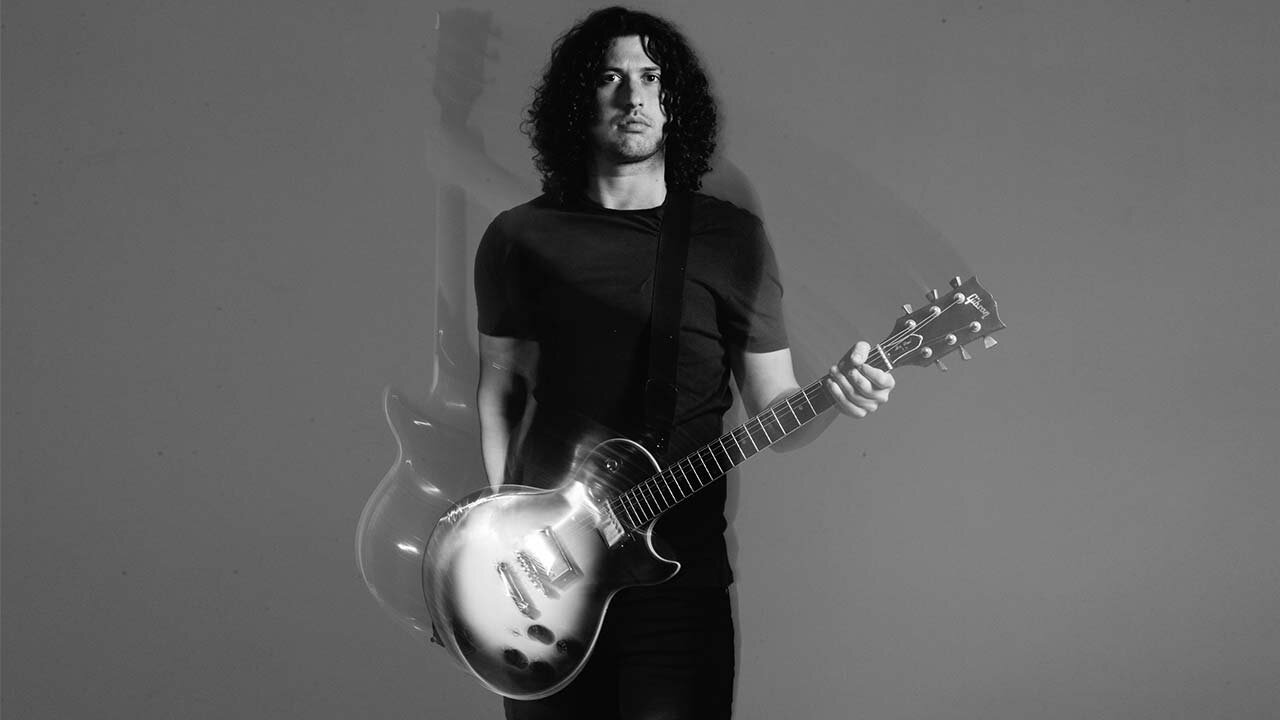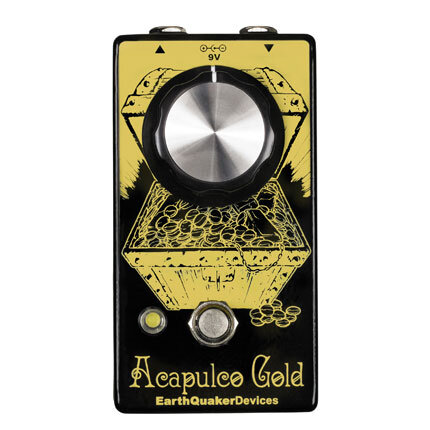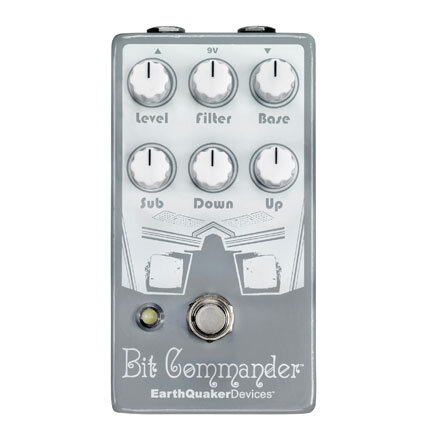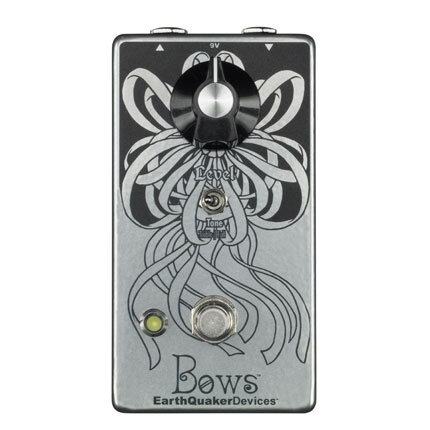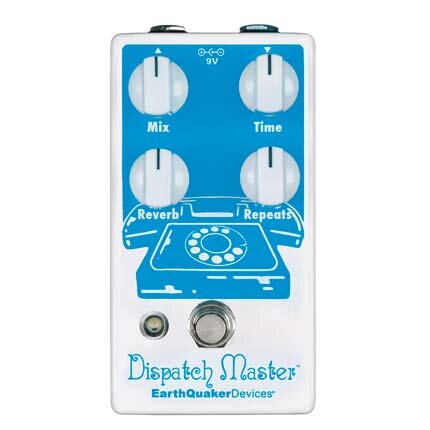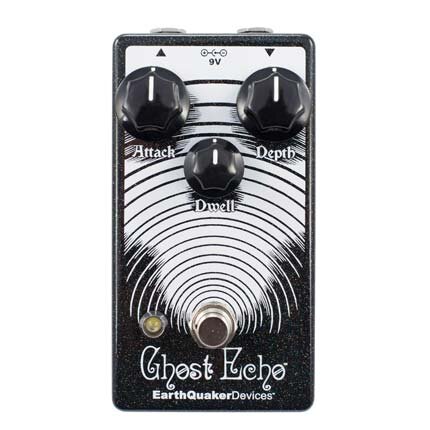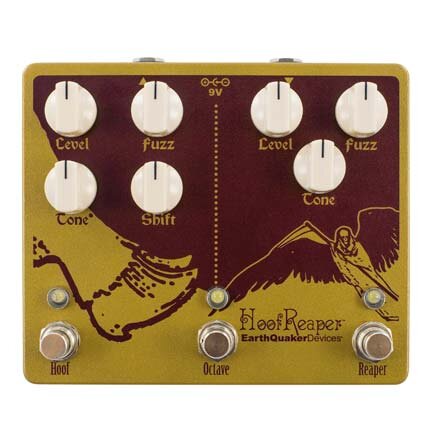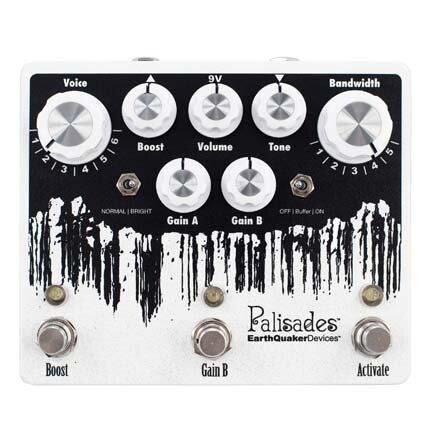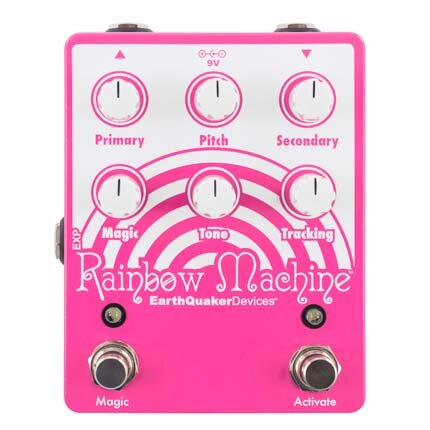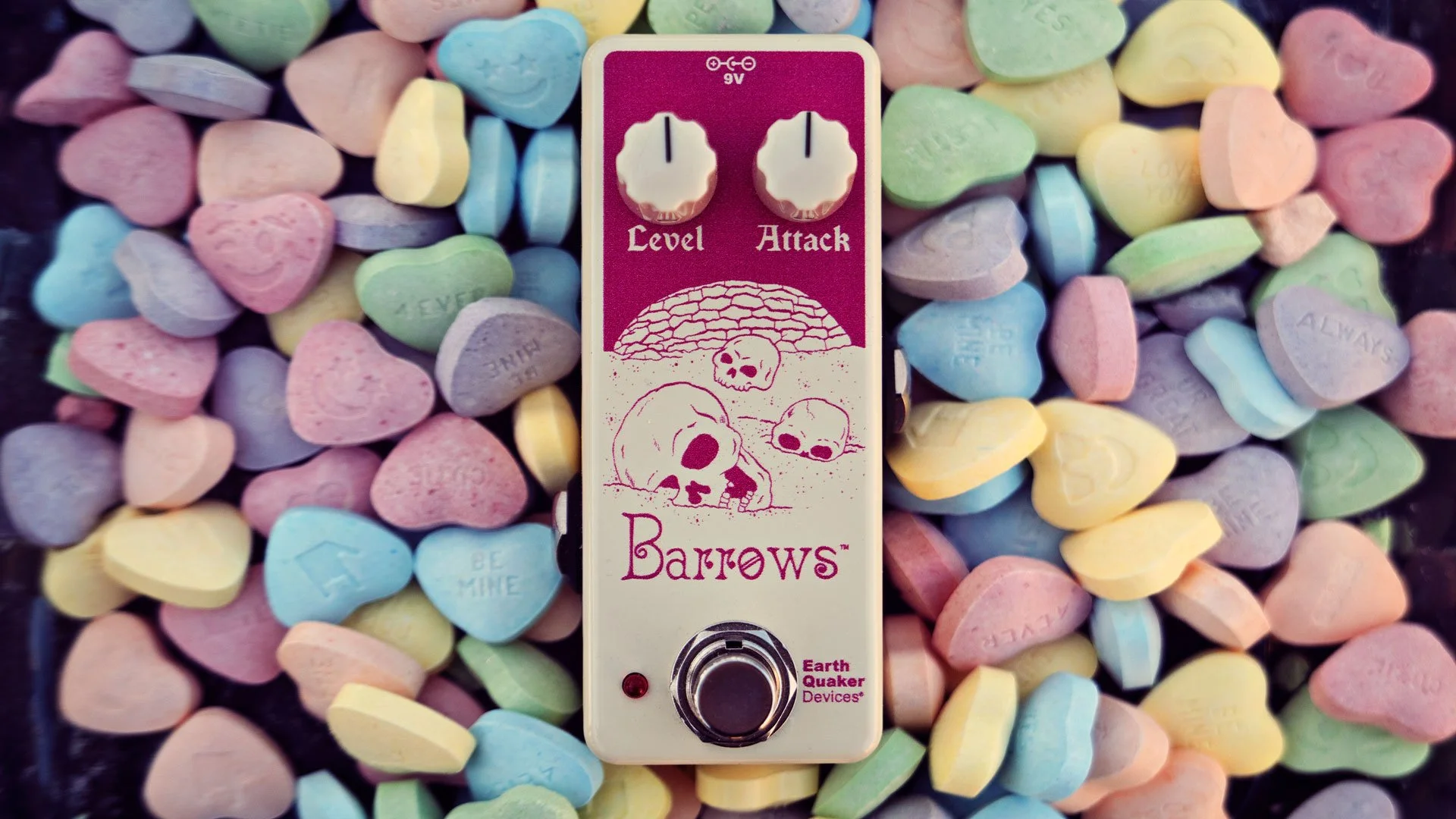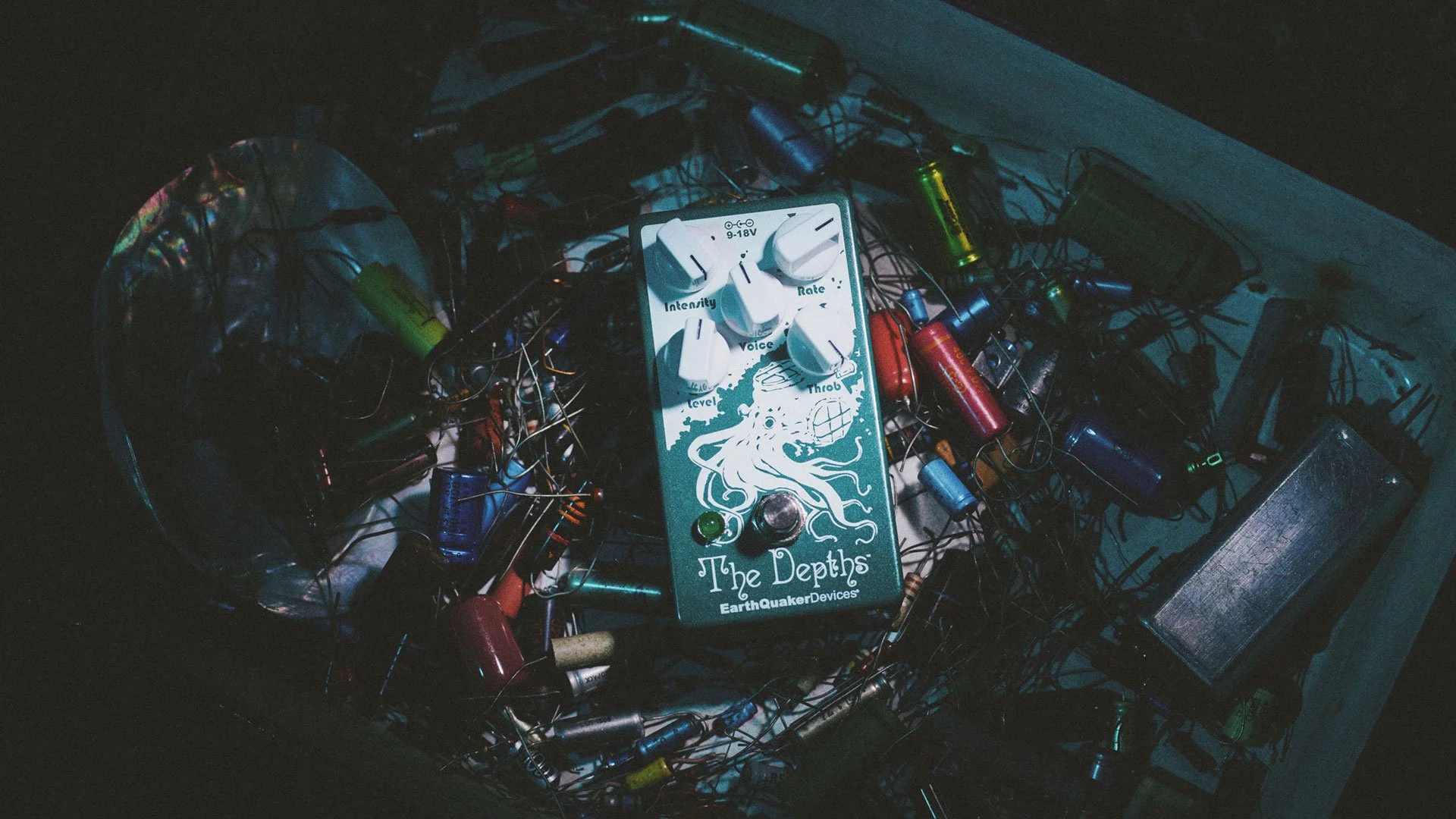The Obsessions Of Ilan Rubin, From Woodstock To Nine Inch Nails To The New Regime
Benjamin H. Smith
When most people were still collecting comic books and dreading middle school, Ilan Rubin was playing the Warped Tour and Woodstock with San Diego pop-punk band F.o.N. It was an impressive start to a career which seems to reach new milestones at every turn. At just 20 years old he took over the drum chair with Nine Inch Nails and in 2011 joined Angels & Airwaves, playing not just drums but also guitar, bass and keyboards and helping write the music on their 2014 album The Dream Walker. Rubin is also the frontman and creative force behind The New Regime. The group released a series of EPs last year which were then reconfigured into the new full-length Heart Mind Body and Soul, which was released this March. EarthQuaker Devices spoke with Ilan in February when he was playing drums with The 8G Band on ‘Late Night with Seth Meyers’ about his life in music and his favorite gear.
Photo by Nolen Ryan.
Benjamin Smith: What brought you to music as a little kid? You started so long ago.
Ilan Rubin: I suppose the environment was already in place for me. My two older brothers were already experimenting with music and my Dad was a musician in high school so his drums were set up in the garage. I started playing in my older brother’s band, F.o.N., when I was 8 or 9 years old.
BS: You’re in the Guinness Book Of World Records as the youngest person to ever play at Woodstock. What do you even remember about that gig [Woodstock ‘99]?
IR: What’s funny about it is I was 11 and I hardly remember anything. Because I started playing so young, any of these things that people mention feel like a lifetime or two ago.
BS: When did you make the move from playing drums to other instruments?
IR: Drums were my first instrument and they were all I played for at least four, maybe five years. My obsession was down one alley. Through my brothers I had access to their guitars and basses. I fell into the same pattern of discovering a new instrument, learning a little something on it, realizing I could play it and then the obsession started. It was identical to the way it was with the drums. I became obsessed with the guitar around 13 and shortly thereafter got into the bass and then around 15 years old I became obsessed with the piano. That doesn’t mean I would ditch the one I was into before. I would kind of amass a skill set on these instruments and understand the way they all worked together and that’s what eventually led to me having my own solo endeavor, New Regime.
BS: Did your influences change from one instrument to the other?
IR: I’ve had very consistent influences and favorites throughout my entire musical life. Led Zeppelin is my favorite band of all time. Bonham was my favorite drummer when I was really studying drumming. Jimmy Page is my favorite guitar player. John Paul Jones is my favorite bass player. I’ll even throw in Robert Plant, though you can’t mimic that. The stuff that I love, it’s not just that I like a few songs. I obsess over it, whether it’s Led Zeppelin or The Beatles or The Police. I’m an enormous Police fan but it started as a Stewart Copeland obsession, then I got into [guitarist] Andy Summers, then I got into Sting’s songwriting and his basslines. Everything is just multifaceted, it’s never, ‘This is the one thing I like from this band.’
BS: You were 20 when you joined Nine Inch Nails. Even though you had been in a bunch of bands, were you intimidated going into that gig?
IR: It wasn’t intimidating. It was extremely exciting, and with the bands I had been in before, the lack of professionalism was a pain in the ass. Working with people that were unappreciative and entitled. So by the time that opportunity presented itself I saw it as, ‘Finally, here’s something that seems great, is great and is where I should be.’
It’s one thing to say those things before getting the job, but when I sat down at my first rehearsal with NIN, all of those thoughts were validated. Like, finally, this is the type of organization I should be a part of and I want to be a part of, where professionalism is mandatory and integrity and quality are essential. It’s no surprise why Nine Inch Nails has been as successful as they’ve been and has always been cutting edge and something to look out for every time there’s new music or a new tour.
BS: It seems like Angels & Airwaves was the first time you played other instruments on a record and were involved in the songwriting process. How did that come about?
IR: Tom [DeLonge] and I had a mutual acquaintance. When [drummer] Atom Willard left the band my name was mentioned and we were put in touch. I met him and met the other guys and everyone was a pleasure to hang out with and it was the first time I’d been with a band from San Diego in six or seven years and it just seemed like something pretty fun to do.
I remember a very specific conversation with Tom where I told him, ‘Just because I have my own solo music, I don’t want you to think I’m going to get in there and pick up the guitar and try to write the songs.’ I’m very well versed in being the drummer and just playing the drums. And he said, ‘No, that’s why I’m calling you specifically because I want somebody who can write music and help push me out of what I’ve been doing for a while.’ It was a very specific and calculated choice.
Then when he decided he didn’t want to tour anymore - which nobody really saw coming, but he’s that impulsive, you never know what he’s going to do from one day to the next - the only choice left was to do The Dream Walker. He decided that the band was just going to be him and myself and we got together whenever Blink-182 and Nine Inch Nails were on breaks and we were both in town. It took way too long, but that was me and him writing everything and me playing everything with the exception of lead vocals.
BS: So let’s talk about your band, The New Regime. Why did you decide to release your new album as three EPs initially?
IR: They weren’t written as EPs - it was written as an album divided into EPs to make the consumption of the music a little more palatable and even paced. Everything’s coming out on The Orchard but the deal took forever and I like to work so I had way more written and recorded than just a single album. I’m pushing it even now, because Heart Mind Body and Soul as an album is 16 songs, which is easily a double album. So the idea was to divide it into quarters, four songs a piece, so that way you could get new music every few months. And the final EP is just the unveiling of the body as a whole.
What was interesting about that, and, admittedly not thought through at the outset, was I packaged the songs to fit what the title of the EP was. So whatever songs worked lyrically as Heart were on that release. But with the final release it will be resequenced to have an optimal listening experience as an album. I hope that there’s someone out there that has the patience and the time to say, ‘I’m just going to put this on and it’s going to be songs 1 through 16.’ Because of how I grew up and the albums that were passed down to me I look at them as a complete body of work. Certain songs sound best when they’re sandwiched between two other specific songs. I personally hate playlists and, ‘I only like this song so that’s the only one I’m going to download.’ It’s just stupid. I don’t think anyone would rip a chapter out of a book and say, ‘I only like this chapter.’
BS: When you play out with The New Regime, are you playing guitar all night?
IR: Live, I play guitar the whole night or sometimes piano, depending on the set list.
BS: What’s your live rig?
IR: What I’ve stumbled across over the past few years for the sake of reliability and efficiency is my Les Paul, my #1, which is a Silverburst ‘81 Les Paul SM. It’s an odd bird because it’s very heavy and it has dot inlays and Les Paul Custom binding but just on the top of the body. As a factory spec it has a 3-way mini-toggle for coil-tapping the bridge and neck pickups. I use two Fender Super-Sonics, which are very reliable 1x12s based on Deluxe Reverbs. They’re very simple and sound really good. Initially, when I got those amps I had a big pedalboard with lots of pedals to get different fuzz sounds and delays and whatever, but I couldn’t argue when Fractal Audio came out with the FX8, which was just the effects sections of their Axe-Fx units. I thought that was the best way to still have real amps but consolidate the pedal setup. I know pedal people will be like, “That’s not cool,” but what’s really not cool is one pedal crapping out on you when you’re on stage. And it just made everything easier as a guitar player and singer to be able to program the three switches I want for the song as opposed to jumping around the pedal board.
Now, when I’m recording I am almost entirely in the analog domain unless it’s incredible digital multi-pedals, like Strymon or Eventide stuff, where you’re not going to find analog pedals that do what they do. EarthQuaker specifically, I think I got my first batch around 2012 and I’m very obsessive about these sorts of things. I’m not the kind of guy who just dips his toe in the pool. I go through the catalog, I see what they have and watch all the demo videos and when I discover a new company I put in a pretty hefty order. If I can recall my very first EarthQuaker order, I bought the Hoof Reaper, the first version, the Rainbow Machine, the Dispatch Master, a Ghost Echo, the Bit Commander...there had to be a couple others in there. I use all those pedals to this day and I love them all because they’re such a versatile lineup. My most recent batch of EarthQuaker pedals have been all about letting the amp do the work so I’m using a lot of those single knobs pedals like the Bows; the Acapulco Gold is fantastic and the Palisades is a phenomenal pedal.
What’s going on for the next year of your life?
The next year of my life is slightly difficult to discuss only because it’s early on in the year and the things that are in the air are not yet announced. I can only say so much. But in terms of the immediate future, which is extremely exciting, The New Regime will be supporting Silversun Pickups on tour for all of March. Heart Mind Body and Soul will have been released. A single will be released to radio and hopefully a spark catches fire out there.
Ed. note: This interview was done in early February, before the outbreak of the COVID-19 virus in the US. On March 13, 2019, the remaining dates on The New Regime’s tour with Silversun Pickups were postponed indefinitely. In a statement posted on Ilan’s Instagram account, he said, “It breaks our heart as we’ve been excited to play the new music for you all but it’s time to stay safe and beat this bug! We hope to have more information for you soon. Stay safe and wash those hands!” In the meantime, please support Ilan by listening to The New Regime’s new album here and purchasing it if you are able:
Header photo by Oliver Halfin.
DEVICES MENTIONED IN THIS ARTICLE
Benjamin Howard Smith is a writer and musician from Queens, New York. He plays guitar and sings for The Brought Low, writes true crime stories and reviews music documentaries. He uses and endorses Barry’s Irish Breakfast Tea.
